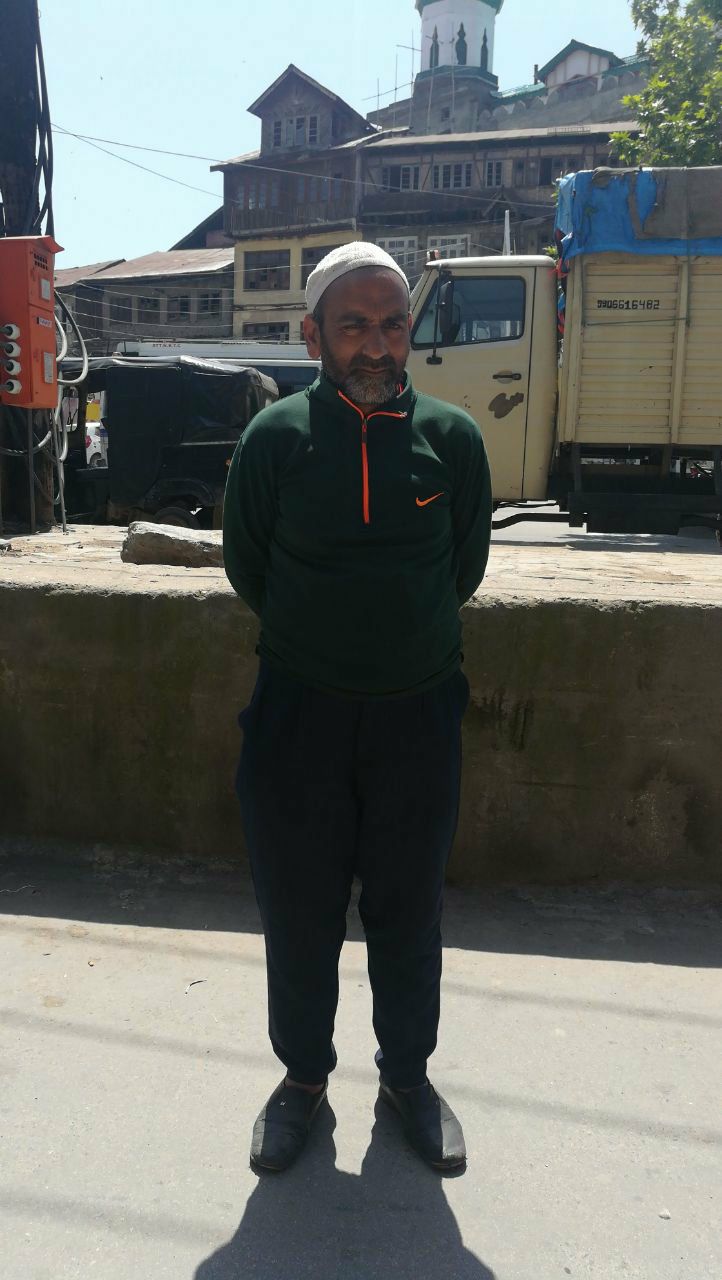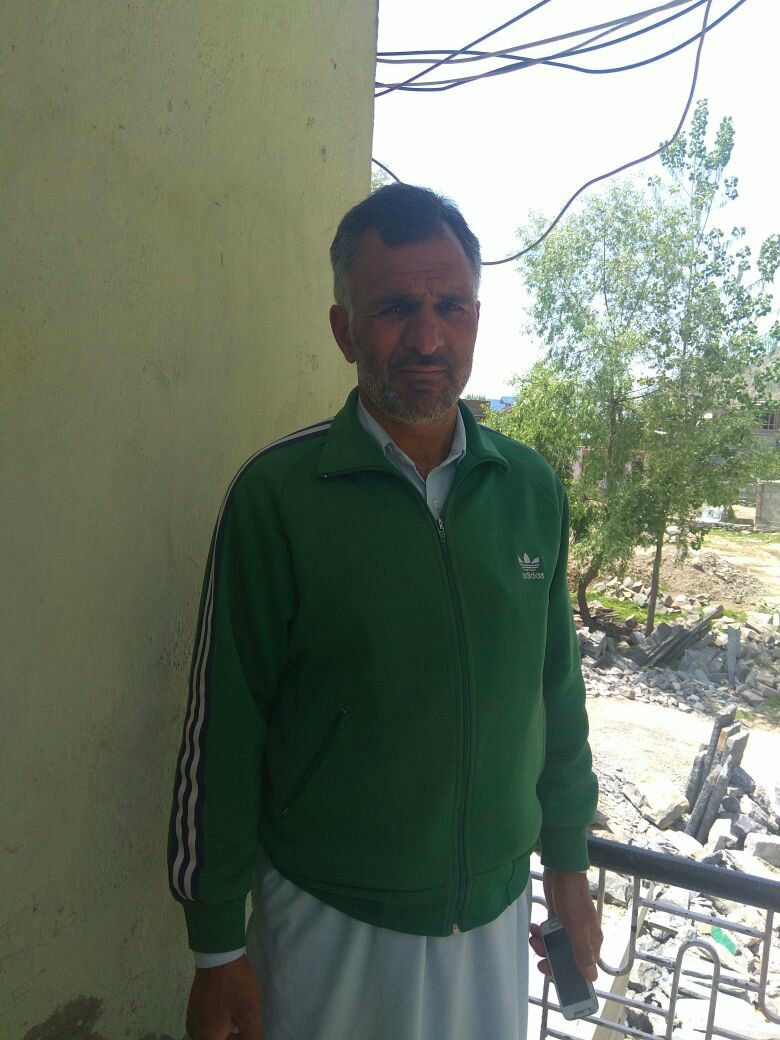

These donors have donated more than 300 blood pints till now and they’re not done yet, writes Majid Maqbool
Whenever they come to know of an emergency requirement for blood in a public hospital, Shabir Hussain Khan, Showkat Ali and Ghulam Hassan stop their daily routine and rush to the hospital to donate blood. Now in their mid-50’s, the three have been doing this for the last three decades and have donated more than 300 pints of blood till now.
Shabir Hussain Khan, 55, a papier-mâché artist from Nowhatta, old Srinagar, began his donating ritual when one of his footballer friends met with an accident in the 1980s. Not many of his friends were willing to come forward and donate blood, but Khan didn’t flinch and volunteered promptly. The footballer friend survived and since then, Khan started to volunteer to donate blood every year in several medical camps, hospitals, and whenever there was an emergency call to him from a hospital.
As soon as Khan receives a phone call for donating blood, he rushes to the hospital on his bicycle. Recently, he donated blood for the record 160th time, as he proudly points out, in a blood camp organized in a city hospital. “Every year, even when there is no emergency requirement, I make it a point to donate blood four times,” he says. “I do it because my blood can save lives. There’s no greater pleasure than that.”

Last year in October, Khan was invited to Rajasthan and appreciated for his voluntary blood donation work in a function held at the Government Medical College, Kota Rajasthan. He was given a medal and certificate of appreciation for being the best blood donor from the valley. He was also felicitated last year by the Indian Society of Blood Transfusion and Immunohaematology at the 42nd National Conference TRANSCON-2017. “It feels good to be recognized for my efforts although I would have liked more appreciation and recognition in my home state here,” he says. Whenever he donates blood in some government organized blood donation camps in the valley, he says most often it’s the ministers and government officials who are welcomed while blood donors like him, who have been offering their voluntary services for decades, are underappreciated and pushed to the sidelines.
About 10 years ago, a foreign publication, while appreciating Khan’s blood donation services, called him the blood man of Kashmir, a title he is proud to be associated with. Of-course there were times when it was difficult to continue donating blood, given the restrictions and curfews imposed in the valley, especially post 2008. Once, during the 2010 summer uprising, Khan left his home on his rundown bicycle to donate blood on October 1, which is the National Voluntary Blood Donation Day. He makes it a point to donate blood every year on Oct 1. When he reached near a city public hospital, some CRPF men grabbed hold of him and started beating him, asking him why he was out at a time when restrictions were imposed in the city. That day, bruised, he returned home without donating blood.
Although he’s been able to bring together many blood donors over the years, while also setting up a local charitable trust which has about 250 members, out of which about 50 members regularly donate blood in medical camps, he wants more people to come forward for the noble cause. It hasn’t been easy for Khan to convince more people to come forward and become voluntary blood donors. “We have conducted over 400 medical camps till now over the years in which blood was donated, which we would then hand over to the hospital blood banks,” he says, adding that these are all voluntary efforts, independently carried out. When these camps are organized, the volunteers have to incur all expenses.“Voluntary work is not easy,” he points. “We are not rich people and we look for help from anyone who can help us with little money to meet expenses for holding these blood camps.”
A lifetime member of Red Cross Kashmir, Khan is determined to continue donating blood as long as he can, and as long as his health allows. “To save a life is to save humanity and our blood can help save many lives,” he says, appealing more people to come forward and become blood donors. “If hospitals don’t have reserve blood, how will people get blood when it’s most needed during emergencies?”
For 46-year-old Showkat Ali Wani, a resident of Balhama in the outskirts of Srinagar, donating blood is a duty which has become a habit since his early 20s. Wani, a part time labourer, has donated blood 95 times till now, he points out, and he is not finished yet.
Wani has known Khan for decades. Since he came to know about his blood donation work in the 90s, Wani joined Khan over two decades ago. They regularly participate in blood donation camps together. Additionally, he is also part of a voluntary organization in his area which has about 200 members, many of them regular blood donors. ”We also organize medical camps by collecting some money among ourselves to meet the expenses to arrange doctors etc., for holding these blood camps,” he says. “In each medical camp, we donate a minimum of 30 pints of blood which is then collected and given to hospitals to preserve it in their blood banks for emergency need.”

For the past 25 years, Wani has also been regularly visiting major public hospitals to see if there are poor patients in need of blood. Apart from donating on his own from time to time, he motivates other people, including his friends, to come forward and donate as well. “I’ve seen close relatives of many patients hesitate in donating their blood at times,” he says. “We try to convince everyone who is healthy to donate at least once every year.”
How long does he intend to keep this up? “I will keep giving my blood till I’m alive,” he says.
Similarly, Ghulam Hassan from Nishat, Srinagar is another regular blood donater. He started in 1980, when he was about 20-years-old. Till now, Hassan, who is in his late 40s, says he’s donated blood 71 times, one pint each time. It was a tragedy that set him on the course of blood donation. Hassan did it for the first time to save his terminally ill father who had leukemia and needed blood several times during his treatment. Hassan would find it difficult to get blood donors outside his immediate family. Shortly afterwards, his father passed away.
Knowing the struggle involved in finding blood donors at the right time, Hassan wanted to donate for other patients and people in need during emergency situations. That’s when he came to know about Khan who was looking for more blood donors to join his group. Hassan joined him and over the decades they have been on this selfless journey together.
Hassan, a tailor by profession, says that blood donation hasn’t weakened the quality of his life at all, in fact it has given it a sense of purpose. He hopes that more people become blood donors and help save lives. These days, whenever he goes out to donate blood, his 10-year-old son accompanies him. Seeing his father do this regularly, he tells him that when he grows up, he will also donate blood.“That makes me proud,” says Hassan.